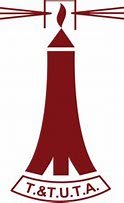Sober 4% reflection needed

Sober reflection is a hallmark of professional growth.
It allows one to look back at events and situations from a perspective of improvements. It enables mistakes to unleash its powerful capacity to teach in a strategic manner.
As the dust begins to settle on the recent collective agreements signed between TTUTA and the Chief Personnel Officer (CPO), members of the teaching service are collectively reflecting on events that culminated in the signing of an agreement that essentially betrayed the concept of "collective bargaining in good faith."
It also saw the invocation of draconian compliance measures available to the government such as the use of the good old fashion delay tactics and of course, the ultimate weapon – an injunction.
As teachers digest the lost value (through inflation) of the paltry increase in remuneration, having already been forced to make significant adjustments to their modest lifestyles, they will certainly be reflecting on the sequence of events that saw them reduced to bystanders, while the powerful forces of the government in its various incarnations inflict what can only be described as a grave injustice to the proletariat.
As reflective practitioners, they will be asking what lessons are to be learnt from a process and system that continues to deny them the right to be treated as workers under an antiquated and draconian colonial piece of legislation called the Industrial Relations Act (IRA).
They will also be reflecting on the reason(s) advanced by the government for the insignificant remuneration adjustment offered and the strategy it employed to have its way.
TTUTA has consistently identified the anti-worker flaws in the IRA, which denies teachers their right to withhold their labour in the process of collective bargaining, mindful that one’s labour is a commodity that can be traded under internationally accepted best practices that adheres to fundamental principles of worker rights.
The "essential service" worker status conferred to members of the teaching service has and continues to be used as a potent weapon to keep teachers in check, having been unhesitatingly invoked on more than one occasion by government to silence teachers in their quest for a fair wage and decent working conditions.
The consistent habit of failing to have collective agreements kept current without punitive consequences upon the government has and continues to be a significant challenge for the union.
These are some of the after effects of the bitter pill teachers would be contemplating as they await their meagre increases in salaries.
They will also clearly remember the indecent haste with which the matter was referred to the Special Tribunal for final arbitration, mindful of the ultimate powers of this supposedly independent body.
The pattern of disrespect of teachers assumed unprecedented proportions in the last eight years and was consistent throughout the entire process with government emboldened and unrepentant in their economic strategy that once again made public sector workers bear the major brunt of economic adjustment.
The struggle by teachers for their just due has and continues to be a relentless one, mindful that while the battle may not have yielded the gains contemplated, the war is certainly not over.
Reflection would now serve to strengthen our resolve to unite in solidarity against forces of exploitation and injustice.
The vote for the Agency Shop Order for the Teaching Service would have expired.
Nonetheless, it is an opportune time for all members of the union to reflect upon the significance of the ballot on 5/6/23. This is an historic and unprecedented development in the history of TTUTA and its membership will be well advised to view their ballot power in the wider context of worker empowerment.
Starting from the inordinate amount of time it took for the application by TTUTA to be acknowledged by the Registration Recognition and Certification Board (RRCB), to their reluctance to conduct the ballot on account of constrained financial resources, and to the threat of seeking legal redress by the union for the RRCB to act in accordance with the law, the ballot represents the culmination of more than a decade-long struggle for the consolidation of teacher voices.
The ballot was an exercise of fairness, ensuring that those who boldly and unashamedly benefit from the struggle, contribute toward the cost of that struggle.
The ballot was an exercise in true democracy, and it is hoped that all members treated the exercise with the seriousness and significance it deserved.


Comments
"Sober 4% reflection needed"